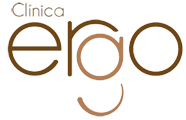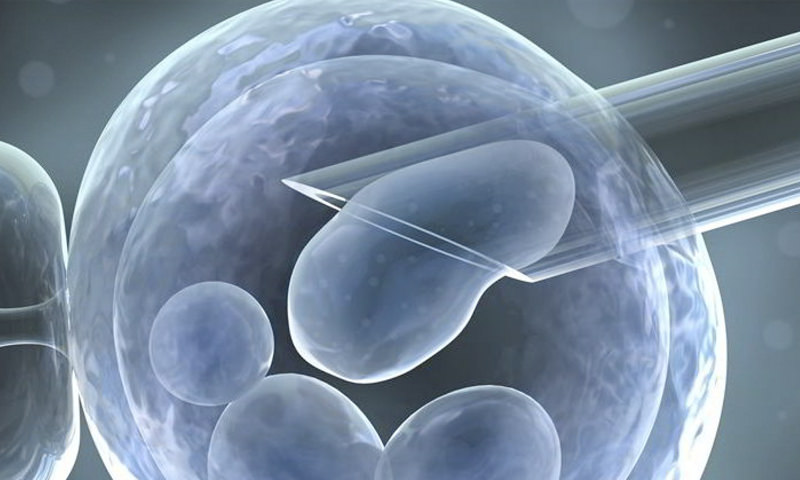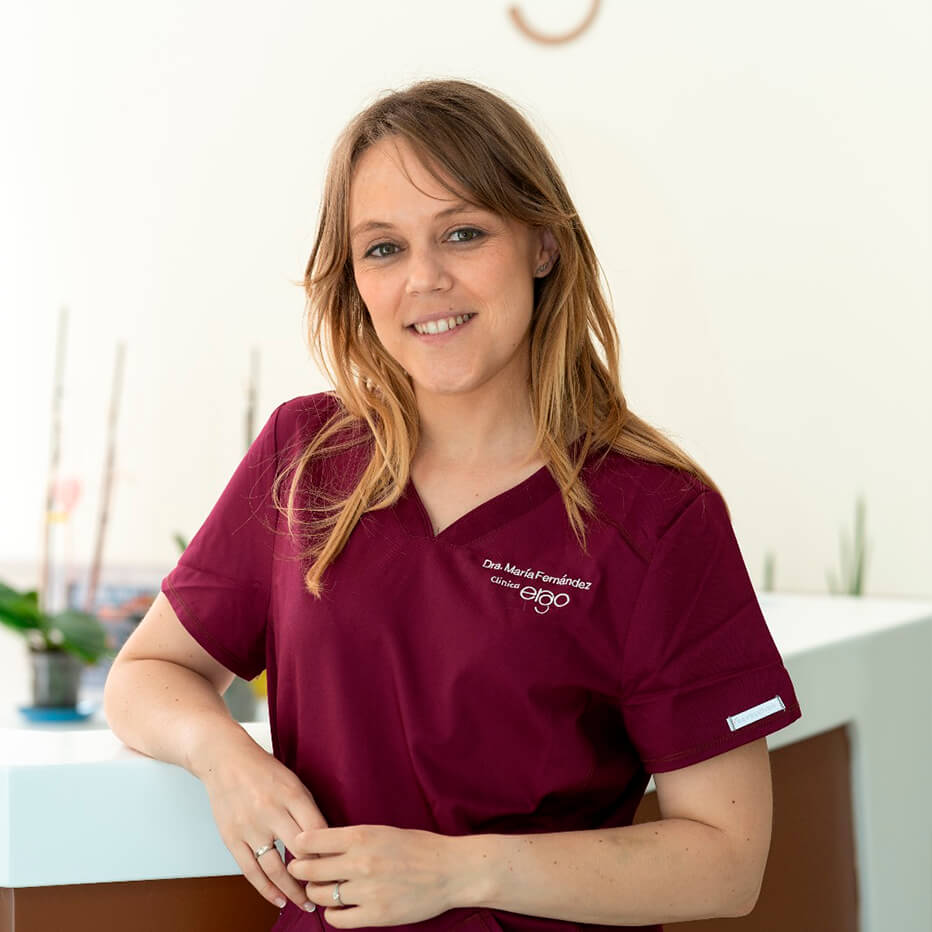In Vitro Fertilization
The most widely used technique, now with EmbraceIn Vitro Fertilization in Gijón, Asturias
What is In Vitro Fertilization?
In Vitro Fertilization (IVF) consists of bringing eggs and sperm into contact in the embryology laboratory in order to obtain embryos for subsequent transfer to the mother’s uterus.
What techniques do we use?
We can find conventional IVF or the one known as Intracytoplasmic Sperm Injection (ICSI). In addition, we are now pioneering the EMBRACE technique.
Achieve your dream
In Vitro Fertilization in Gijón
EMBRACE Technique
Phases of the In Vitro Fertilization (IVF) process
The treatment seems complex, but for you it will be simple. You will be informed at all times of how the embryos are progressing and you will have the entire ERGO Clinic team at your disposal to answer any questions, comment on what you need and feel accompanied throughout the process.
If you still have doubts about what it consists of, come and see us. The first visit is totally FREE and without obligation. We will be happy to explain everything in detail.
If you are undergoing treatment at another clinic, we can also help you. Avoid traveling to perform your controls, we do the stimulation ultrasound or endometrial preparation and we deliver the complete report with measurements and images in paper and digitized format, all on the fly.
Ovarian stimulation
Between the 1st and 4th day of your period, you should come to the clinic for a gynecological check-up. Depending on the results of previous analytical tests, the ultrasound image we see and other personal parameters of your particular case, you will be prescribed the most appropriate medication.
With this medication, which is administered subcutaneously and you can inject it yourself in a very simple way in your belly, the ovaries are stimulated. It is a very simple process, and although on the day you are prescribed the medication we will explain in detail how to use it, you will always have our nursing team at your disposal to help you.
The stimulation lasts between 9 and 12 days, depending on each patient, during which several ultrasound and hormone tests are performed to see the response to the treatment and determine how to continue until the correct day of egg retrieval (also called ovarian puncture) is set.
Egg retrieval or follicular puncture
Once your follicles reach an adequate size, the ovarian puncture is scheduled. It is performed in the operating room, under anesthetic sedation, on an outpatient basis and without the need for hospitalization. During the 5-10 minute process, the follicular fluid is aspirated and the eggs are collected in the laboratory.
Everything is so fast that when you wake up, the eggs are already stored in the incubator in a specific culture medium and thus recovering the ideal physiological state.
Egg decumulation
After about two hours, and when the technique to be performed is ICSI, the embryologists decumulate the oocytes (i.e. remove the cells that cover them) in order to assess their maturation state. Only those whose microscopic image is that of metaphase II (MII) will be suitable for sperm injection.
Semen preparation
Once the fresh semen sample is received, the embryologists separate the spermatozoa from the seminal plasma (by SwimUp or density gradients, depending on the seminal quality). This allows enriching the sample in those spermatozoa of better quality and concentrating them in a suitable way to perform classic IVF or ICSI.
Egg fertilization
When the chosen technique is classical IVF, eggs and sperm are placed in a well with special culture medium for this process.
When ICSI is performed, embryologists select under a 400x microscope the best sperm in terms of motility and morphology to be introduced into each mature egg.
Observation of the ovum
16-20 hours after the introduction of the sperm into the egg, the fertilization of the treated eggs is assessed. Embryologists study them under the microscope and note the number of pronuclei inside each egg.
All those in which two pronuclei appear will be noted as correctly fertilized eggs.
And at that very moment, the embryologists will call you and summarize everything that happens with your embryos.
Embryo tracking
Every day the embryologists evaluate the embryos and note characteristics such as cell number, cell size, appearance of fragments, or any other relevant aspect. This monitoring provides valuable information for selecting which embryos are most likely to implant.
In addition, at the ERGO Clinic we have the Tme-Lapse Geri system, which not only allows us to know these characteristics without the need to remove the embryos from the incubator, but also allows the embryologists to know the division rhythms and the kinetics of the embryos during all hours of the day. In this way we achieve continuous cultures without disturbing the growth conditions (temperature, humidity and optimal gas concentration) and more information about the embryos.
Again, the embryologists will call you to let you know how your embryos are doing, taking care of your questions and comments throughout the process.
In the case of Embrace, the embryos are transferred to a new culture drop on day 4 of development, and remain there until day 6 or 7, at which time the blastocysts are vitrified and the drop where they have been growing is collected. That drop is sent for analysis and after a few days, the genetics laboratory informs us which embryos can be transferred because they do not present numerical or structural chromosomal genetic alterations. These alterations are usually implicated in implantation failure, repeated miscarriages or pathologies such as Down syndrome or Patau’s syndrome, among others.
Embryo transfer to the uterus
Embryo transfer does not require sedation and is not uncomfortable at all. It is performed under ultrasound guidance, that is, under ultrasound control, which allows us to ensure that the embryos are deposited correctly in the right place in the uterus.
The number of embryos to be transferred should never exceed the number of 3 according to the law of assisted reproduction, but if 1 and 2 embryos are transferred it will be agreed between the team of embryologists, gynecologists and yourselves. Depending on your medical history, the state of the embryos and your wishes, the embryos of better quality will be transferred.
It can be performed on any day of embryonic development, the moment to be decided according to your medical characteristics, the embryo quality observed or history of other cycles or miscarriages. This again makes the process individualized in each case.
Using EmbryoGlue
This is a specific embryo culture medium for the time of transfer. As its name suggests, it acts as a “glue” between the embryo and the endometrium thanks to the hyaluronic acid molecule that is part of its composition. Natural, physiological and with very good results especially in patients with implantation failure.
Vitrification of supernumerary embryos
According to the law 14/2006 on assisted reproduction, viable embryos cannot be discarded. Therefore, all embryos of good quality that are not transferred to the uterus fresh will be vitrified. This ultra-rapid freezing system allows the cryopreservation of embryos for unlimited time with survival rates above 98%.
At the ERGO Clinic we are very aware of the hopes that are placed in vitrified embryos; therefore, our policy is to cryopreserve only those whose quality is sufficient to ensure survival after devitrification. Because in this process the emotional part plays a very important role.
Egg quality with Artificial Intelligence
Science is advancing by leaps and bounds, and it is now possible to classify the quality of oocytes thanks to artificial intelligence. Simply by taking a photograph of each oocyte, they are classified with a score, allowing us to know their quality, which until now was only subjective.
Need more information?
We are a team of more than 15 professionals specialized in assisted reproduction and women’s health. Do you have any doubts? We invite you to meet us, your first visit is totally FREE.


